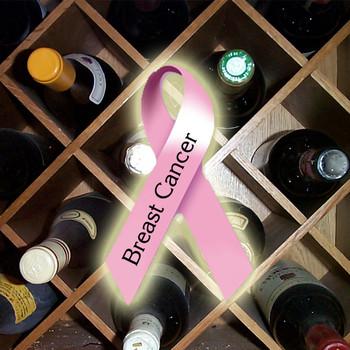 Whenever I give a breast cancer awareness presentation, I am asked about reducing the risk of getting breast cancer. Women in the audience want to know how diet, exercise and maintaining a healthy weight can reduce their risk of getting breast cancer. I have never been asked how reducing alcohol intake will reduce the risk of breast cancer.
Whenever I give a breast cancer awareness presentation, I am asked about reducing the risk of getting breast cancer. Women in the audience want to know how diet, exercise and maintaining a healthy weight can reduce their risk of getting breast cancer. I have never been asked how reducing alcohol intake will reduce the risk of breast cancer.
I read the following report from 36th Annual San Antonio Breast Cancer Symposium presented on December 13, 2013; I was surprised to learn this lack of interest in reducing alcohol consumption, as a way of reducing breast cancer risk, is more common than I had realized.
According to the report, American women are uninterested in learning how to cut their alcohol consumption to reduce breast cancer risk. In a survey of a nationally representative sample of nearly 1700 women, only 12% of survey respondents were interested in learning how to reduce their drinking, which is a proven risk factor for breast cancer.
Eighty-eight percent of those interviewed reported being “uninterested” in learning about how to reduce alcohol consumption, report the authors, led by Marisa Weiss, MD, president of breastcancer.org, the consumer Web site.
The intent of the survey, presented as a poster here at the 36th Annual San Antonio Breast Cancer Symposium, was to measure consumers’ knowledge of breast cancer risk and their interest in risk reduction. It was administered online, and had an 87% completion rate among the 1692 women who participated.
Overall, 74% of the respondents were 30 to 65 years of age, and 68% identified as white, 14% as Latina, 12% as black, and 1% as Asian. Only 2.6% of the women had been diagnosed with breast cancer.
A majority of the respondents (78%) were interested in learning how to reduce breast cancer risk. The top 3 risk-reduction factors these women wanted to learn more about were exercise (41%), weight (35%), and diet (30%).
There are multiple reasons women are not interested in education about cutting back on alcohol, said Dr. Weiss, who is director of breast radiation oncology at the Lankenau Medical Center in Wynnewood, Pennsylvania. Alcohol is “embedded in all the good times in life,” she said, referring to parties, end-of-work-day rituals, and coming-of-age rites, such as college socializing. “Alcohol is also self-medication. These are stressful times with a lot of economic uncertainty, and alcohol is a reward at the end of a long day,” she said.
There is a dose-response relation between alcohol and breast cancer risk: the higher the daily intake, the greater the risk, Dr. Weiss pointed out.
There have been multiple studies that establish alcohol, even in small daily amounts, as a breast cancer risk factor. A 2012 meta-analysis of 113 studies of light drinking and breast cancer found that the equivalent of 1 drink per day increases risk, as reported by Medscape Medical News. In addition, a widely covered study published in 2011 found that the regular consumption of a light amount of alcohol — 3 to 6 glasses of wine per week — over a nearly 30-year period increased a woman’s risk for invasive breast cancer by a small but statistically significant amount (JAMA. 2011;306:1884-1890).
However, last year, a large American cohort study concluded that a substantial portion of the apparent increased risk for cancer among light to moderate drinkers is related to people lying about their drinking habits.
“People will under-report drinking and eating unless the reporting is anonymous,” acknowledged Dr. Weiss.
She noted that she is especially concerned about the “strong trend” of “more and more drinking among young women in college” in the United States.
 Whenever I give a breast cancer awareness presentation, I am asked about reducing the risk of getting breast cancer. Women in the audience want to know how diet, exercise and maintaining a healthy weight can reduce their risk of getting breast cancer. I have never been asked how reducing alcohol intake will reduce the risk of breast cancer.
Whenever I give a breast cancer awareness presentation, I am asked about reducing the risk of getting breast cancer. Women in the audience want to know how diet, exercise and maintaining a healthy weight can reduce their risk of getting breast cancer. I have never been asked how reducing alcohol intake will reduce the risk of breast cancer.
